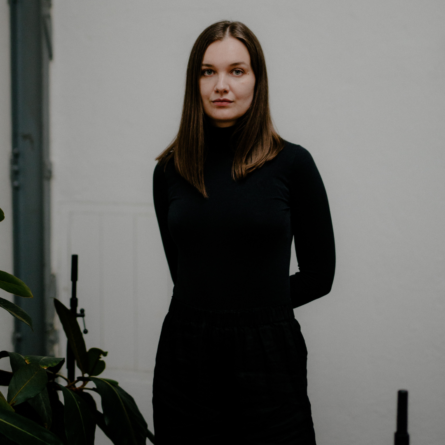Sophia Jani
Sophia Jani is a German composer of contemporary classical music who takes a poetically minimalist approach to composition.
Her music has recently been performed by the New Jersey Symphony, the Munich Symphony, Bang on a Can, musicians of the Dallas Symphony, the Goldmund Quartet, vocal sextet Sjaella, pianist Eunbi Kim and the Dandelion Quintet, among others. Performance venues include the Elbphilharmonie, Lincoln Center, Baryshnikov Arts Center, MASS MoCa, as well as The Green Space. She has also contributed music to successful film, theater, dance and album projects.
In 2021, Jani was awarded the prestigious Scholarship for Music by the City of Munich for her solo violin piece III. Her debut album of chamber works, 2022’s Music as a mirror, received a nomination for the German Classical Music Prize “Opus Klassik.” In June 2022, she co-composed and produced “Tulips” with violinist Darian Donovan Thomas, which was featured on !K7’s String Layers Vol. II. And in July 2022, she participated in the Edward T. Cone Composition Institute at Princeton University, where her composition “What Do Flowers Do at Night?” was performed by the New Jersey Symphony under conductor David Robertson. Jani is the 2023 Musical Artist in Residence of the Arvo Pärt Center, as well as the recipient of the APC Residency Fellowship. She has also been appointed Composer in Residence of the Dallas Symphony for the 2023/24 and 2024/2025 seasons.
In addition to her work as a composer, Jani is passionate about building a diverse and international community of artists that open-mindedly addresses the challenges notated music faces in the 21st century. To that end, she is one of the founders and artistic directors of “Feet Become Ears”, which is a platform that commissions, presents, and celebrates contemporary chamber music.
Jani holds degrees from the University of Augsburg, the University of Music and Performing Arts Munich and the Yale University School of Music where she studied with Martin Bresnick and David Lang, made possible through the generous support of the Fulbright foundation.
